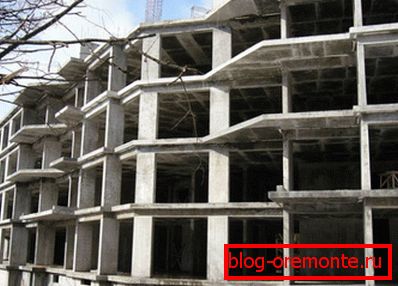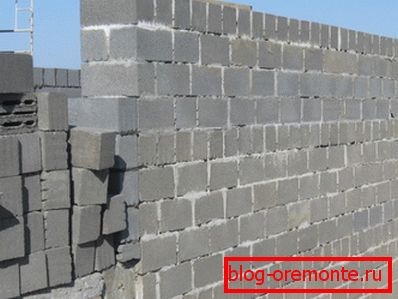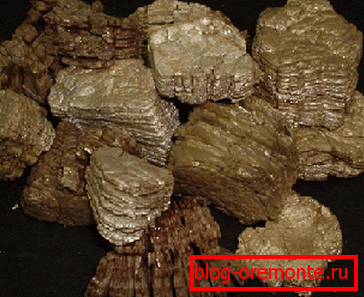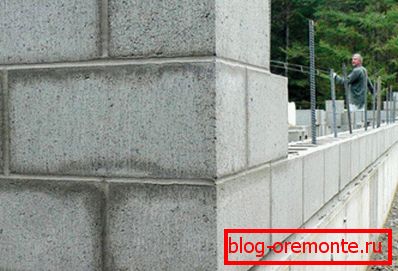Concrete cube: components and proportions
The topic of this article is the calculation of materials for concrete cube. We have to find out what components mix its various types, in what proportions these components are combined and what properties the resulting monoliths have.

Kinds
Let's start with a list of types of concrete mixes.
We will immediately agree that our interest will be limited to their types widely used in housing construction: for example, extra-heavy concrete mixes that use barites and iron ore as aggregate are hardly interesting to the novice builder.
- Heavy concrete most in demand in the manufacture of concrete foundations, load-bearing walls, ceilings, screeds, beams, columns, etc.
- Lungs used where it is necessary to combine mechanical strength with good thermal insulation properties and moderate weight.
- Destiny ultralight - perform the role of non-loaded enclosing structures (for example, filling the walls in frame-monolithic buildings).
- Cellular Depending on the degree of porosity, they may have properties identical to light or super light, and be applied in the relevant field.
Curious: Ultralight and I
cellular concretes can be used for monolithic insulating pouring of wall cavities. They favorably differ from other heaters by absolute fire resistance, absence of caking and practically unlimited service life.
Composition
Obviously, the composition of concrete per 1 cube will vary greatly for materials with different physical and operational properties.
Heavy
Typical composition of construction materials - Portland cement, quartz sand and crushed stone. Cement performs the function of a binder, crushed stone - coarse aggregate, the sand fills the cavities between the gravel.
Основная характеристика любого конструкционного материала - прочность. Strength mark бетонного монолита определяется разрушающим усилием на сжатие после набора полной прочности, измеренным в килограммах на квадратный сантиметр (кгс/см2).

It is easy to guess that the composition will depend on the strength mark. As the brand grows, the amount of binder increases and the percentage of aggregate decreases.
Here is the calculation of the cube of concrete for the most sought-after brands:
| Brand strength | Consumption per cubic meter | |||
| Portland cement M400 | Water | Sand | Rubble | |
| M100 | 206 kg | 185 л | 780 kg | 1177 kg |
| M200 | 287 kg | 185 л | 751 kg | 1135 kg |
| M300 | 384 kg | 205 л | 689 kg | 1055 kg |
| M400 | 492 kg | 205 л | 661 kg | 1000 kg |
Lungs
A significant part of the volume of this type of material is a porous aggregate. In this capacity, expanded clay, pumice, metallurgical and fuel slag, sawdust and many other materials can be used.
It is curious: quite often in one material a porous coarse fractional and dense fine fractional aggregate is combined (for example, expanded clay and quartz sand).
We give the composition of 1 cube of concrete for some fillers.
Керемзитобетон
| Raw material | amount | Total density | Strength mark |
| Portland cement M400 | 250 kg | 1000 kg / m3 | 50 kgf / cm2 |
| Керемзит | 720 kg | ||
| Water | 100 - 150 л | ||
| Portland cement M400 | 220 kg | 950 kg / m3 | 90 kgf / cm2 |
| Coarse claydite (5-15 mm) | 330 kg | ||
| Керемзитовый песок (до 5 мм) | 390 kg | ||
| Water | 90 - 130 л |
Pay attention: in spite of the fact that in the second case the cubic meter of concrete contains less binder (which is beneficial since its price is much higher than that of aggregate), the total strength of the material after the introduction of fine fraction aggregate has increased.

Opilkobeton
| Raw material | amount (в кг или л) | Total density | Strength mark |
| Portland cement M400 | 280 | 1760 kg / m3 | 70 kgf / cm2 |
| Sawdust | 100 | ||
| Quartz sand | 1350 | ||
| Water | 100-150 |
Slag concrete
How to make shlakobeton with your own hands?
The instruction depends on what is more important for you - strength or heat-insulating qualities, which in most cases improve with a drop in the density of concrete products.
- Сочетание 200 кг цемента, 720 kg гранулированного шлака и 130 литров воды создаст материал плотностью 950 kg / m3 и прочностью 75 кгс/см2.

- 200 кг цемента, 500 кг гранулированного шлака, 540 кг кварцевого песка и 130 литров воды позволят приготовить шлакобетон плотностью 1250 kg/м3 и прочностью 100 кгс/см2.
- If 200 kg of cement, 1080 kg of boiler slag and 130 l of water are included in the concrete cube, slag concrete with a density of 1300 kg / m3 and strength of 75 kgf / cm2 will be obtained.
- Наконец, плотность в 1450 кг/м3 и прочность на сжатие в 100 кгс/см2 можно обеспечить, смешав 200 кг цемента, 720 kg котельного шлака, 540 кг песка и 130 л воды.
Ultralight
We understand a family of examples of vermiculite concrete.
If we prepare concrete from 1 cube in volume, then we need to purchase per cubic meter:
- For insulation of floors and roofs (density 425 kg / m3) - 200 kg of cement and 1.2 m3 of expanded vermiculite. The water will be gone around 400-450 l / m3.
- To fill cavities in the masonry and panels (density 305 kg / m3), 100 kg of portland cement is added to 1.2 m3 of vermiculite.

Cellular
We give the recipe for the preparation of foam concrete of different brands, subject to the use of synthetic foaming agent.
| Brand by density (kg / m3) | Sand kg | Portlandcement, kg | Frother, kg |
| 1200 | 900 | 250 | 0,8 |
| 1000 | 667 | 333 | 0,96 |
| 800 | 330 | 400 | 1,12 |
| 600 | 250 | 300 | 1,16 |
| 500 | - | 417 | 1,18 |
What with aerated concrete?
To obtain a cubic meter of material density D600 on the basis of a mixed binder, you will need:
- Portlandcement - 90 kg.
- Finely ground sand - 375 kg.
- Lime - 35 kg.
- Water - 300 l.
- Aluminum powder - 0.5 kg.

Conclusion
We hope that they did not tire the reader with a long list of boring recipes. As usual, the video in this article will offer him additional subject matter. Successes in construction!